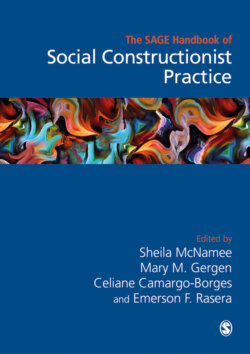Читать книгу The Sage Handbook of Social Constructionist Practice - Группа авторов - Страница 164
На сайте Литреса книга снята с продажи.
No Inherent Meaning in Events, Objects, and Relationships
ОглавлениеThe above premise shifts social constructionist informed social work away from objective assessments designed to discover the truth of things into the realm of collaborative exploration in which meaning and understanding are explored and created relationally. Specifically, social workers are invited to adopt an open mindset in which assumptions of meaning are acknowledged. This position has been described in various ways by social constructionist informed scholars as looking with planned emptiness (Middleman and Wood, 1990), adopting a not knowing position (Anderson and Goolishian, 1992), and taking a curious stance (O'Hanlon and Beadle, 1999). This premise is most clearly seen in macro and mezzo social work through collaborative community and agency approaches (Wood and Tully, 2006) and in research through constructivist grounded theory (Charmaz, 2014) in which social workers seek to engage in collaborative and non-expert oriented ways of practice and research to reach agreed-upon constructed outcomes, collaborative change, and constructed meaning. In micro practice the premise that meaning is not inherent can be liberating for clients because when definitional space exists it becomes possible to change meanings that may have been problematic. For example, the current trend in social work is to place the word ‘trauma’ on past challenging events. Using the word trauma may be totalizing in the sense that it blocks out alternative and possibly preferred meanings from being discovered or created. By approaching events without preconceived ideas of meaning, definitional space is created. Phrases that clients have used to free themselves from the idea of trauma include ‘a moment of growth’, ‘a rite of passage’, ‘forged by fire’, ‘a spiritual awaking’, or ‘an unwanted expansion of self’.
